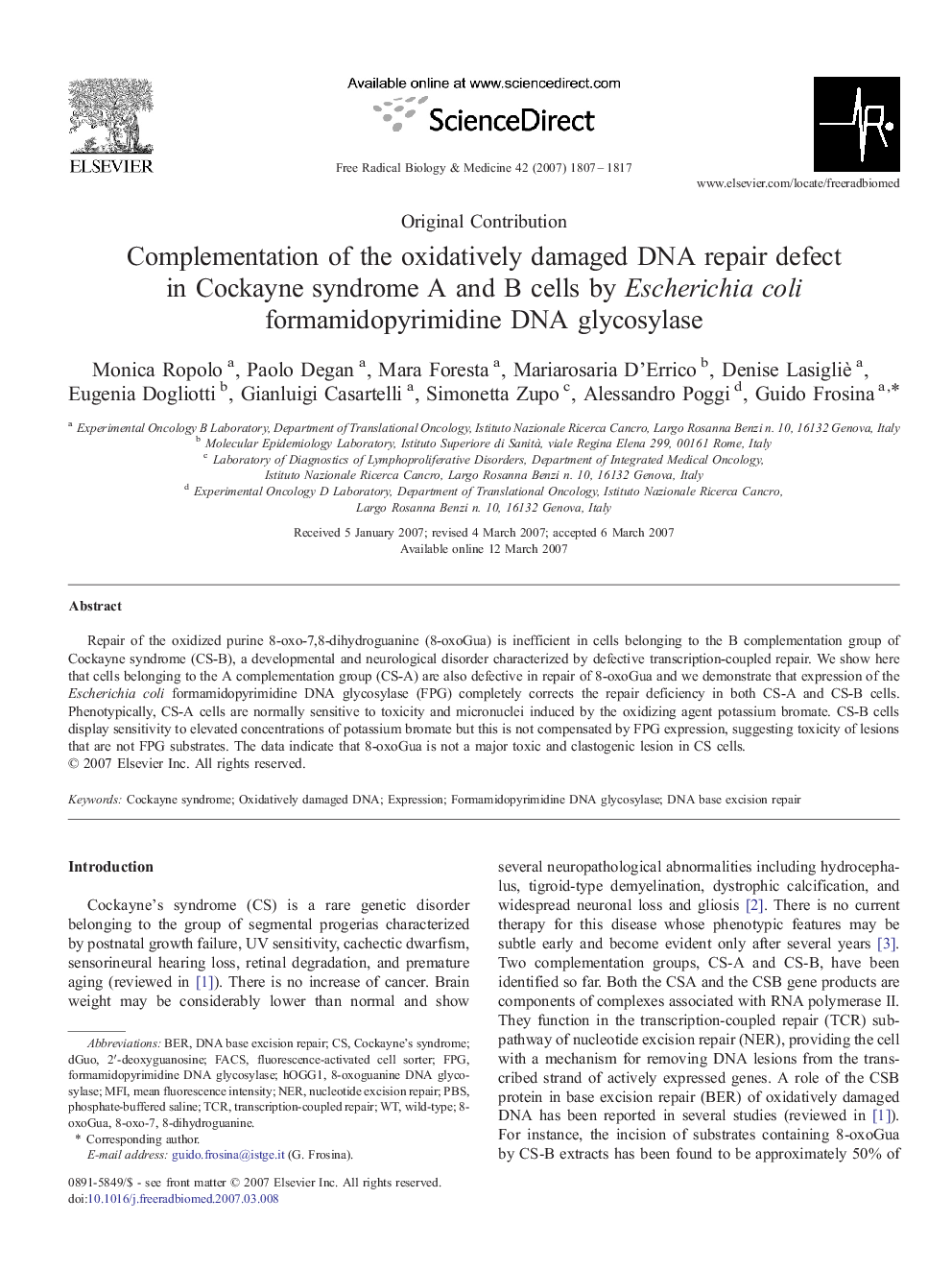| Article ID | Journal | Published Year | Pages | File Type |
|---|---|---|---|---|
| 1911183 | Free Radical Biology and Medicine | 2007 | 11 Pages |
Abstract
Repair of the oxidized purine 8-oxo-7,8-dihydroguanine (8-oxoGua) is inefficient in cells belonging to the B complementation group of Cockayne syndrome (CS-B), a developmental and neurological disorder characterized by defective transcription-coupled repair. We show here that cells belonging to the A complementation group (CS-A) are also defective in repair of 8-oxoGua and we demonstrate that expression of the Escherichia coli formamidopyrimidine DNA glycosylase (FPG) completely corrects the repair deficiency in both CS-A and CS-B cells. Phenotypically, CS-A cells are normally sensitive to toxicity and micronuclei induced by the oxidizing agent potassium bromate. CS-B cells display sensitivity to elevated concentrations of potassium bromate but this is not compensated by FPG expression, suggesting toxicity of lesions that are not FPG substrates. The data indicate that 8-oxoGua is not a major toxic and clastogenic lesion in CS cells.
Keywords
Related Topics
Life Sciences
Biochemistry, Genetics and Molecular Biology
Ageing
Authors
Monica Ropolo, Paolo Degan, Mara Foresta, Mariarosaria D'Errico, Denise Lasigliè, Eugenia Dogliotti, Gianluigi Casartelli, Simonetta Zupo, Alessandro Poggi, Guido Frosina,
